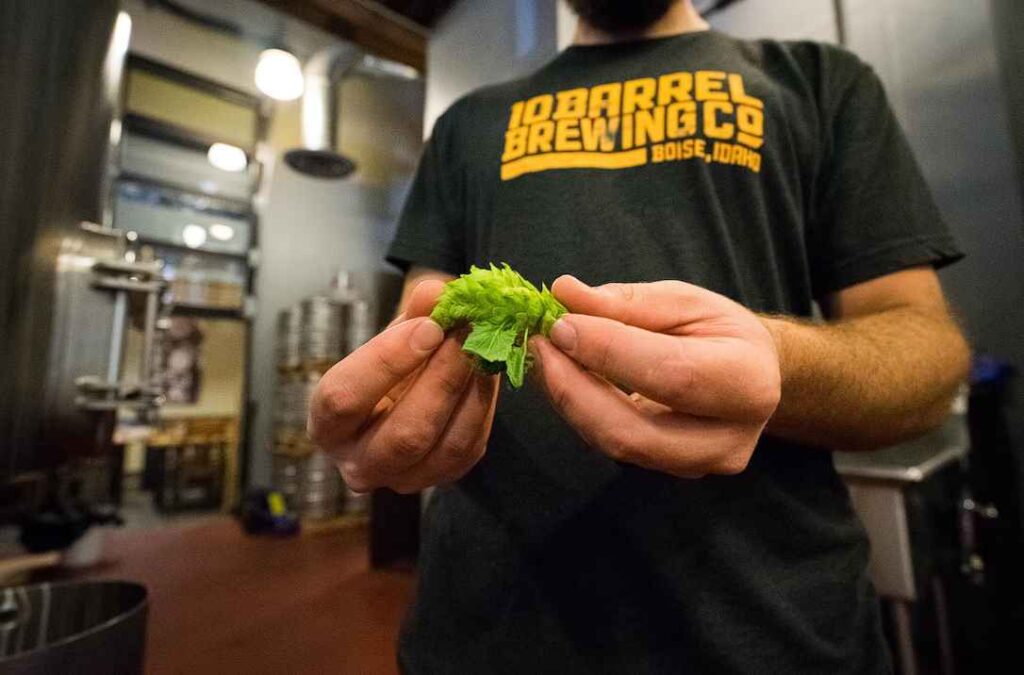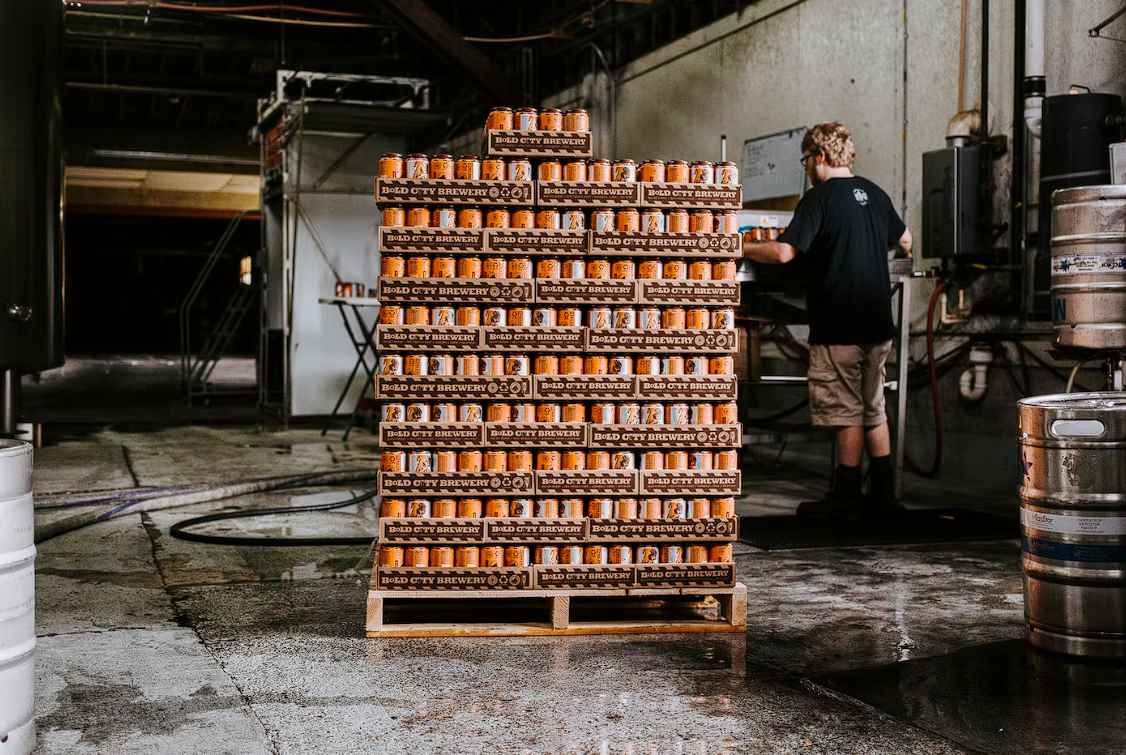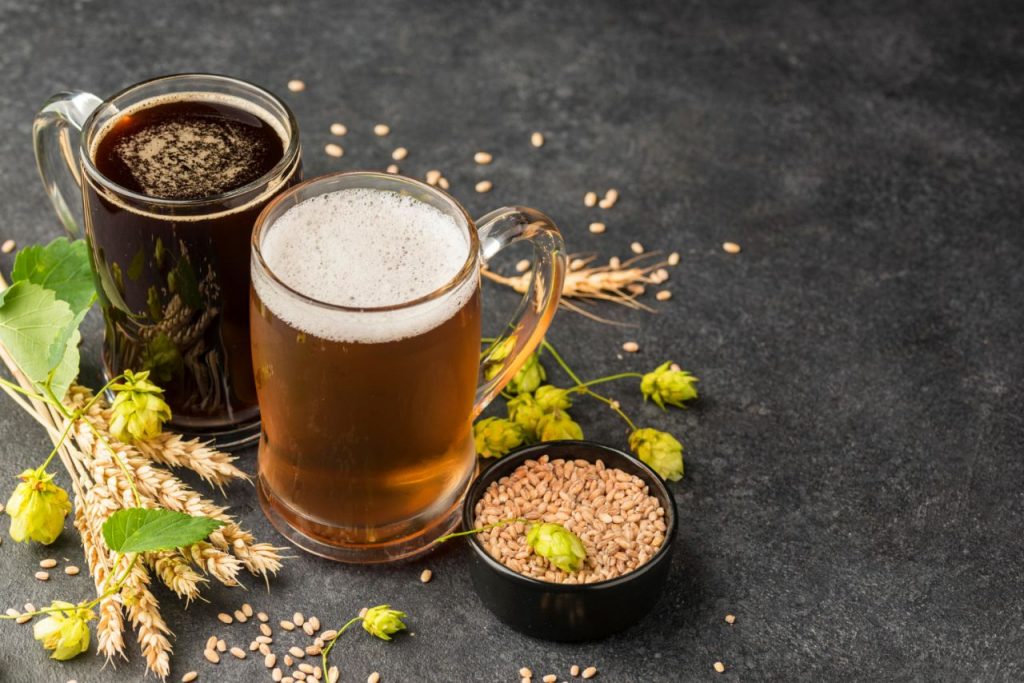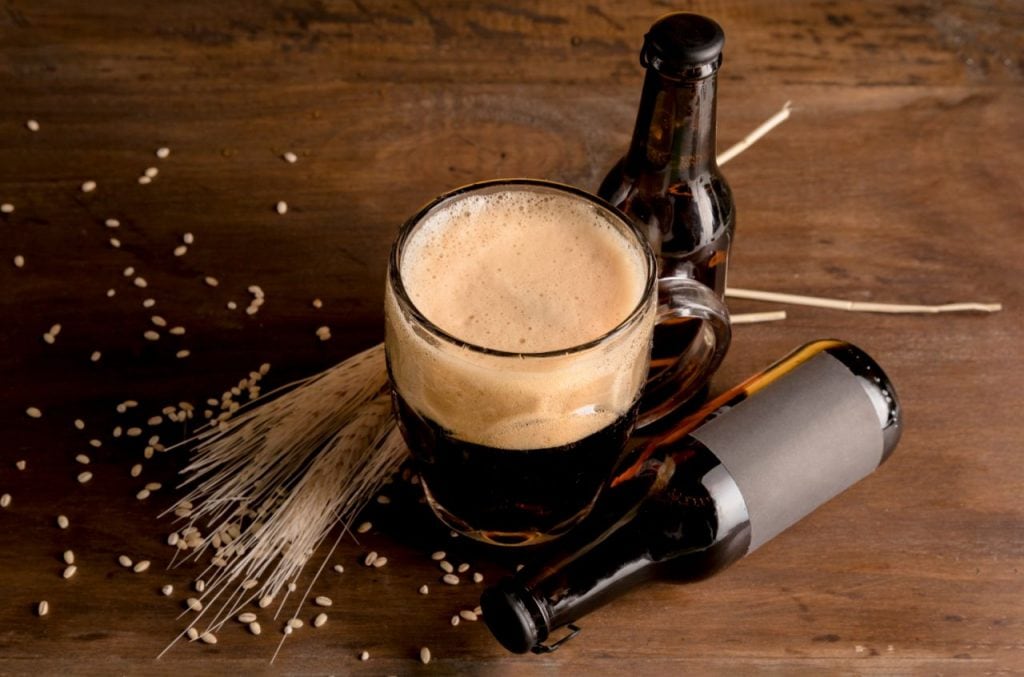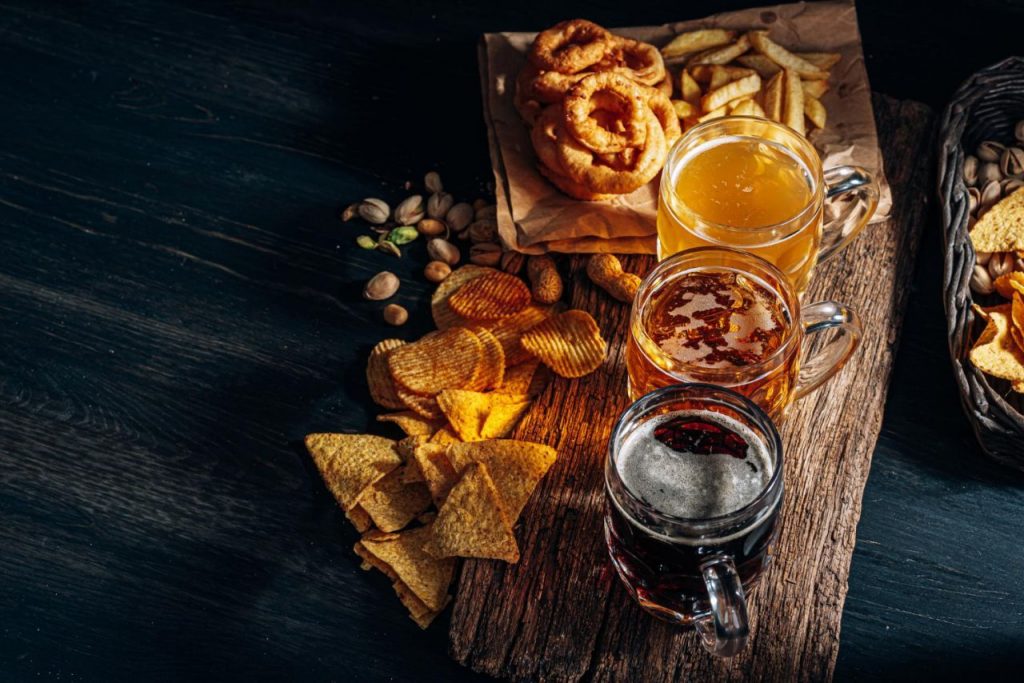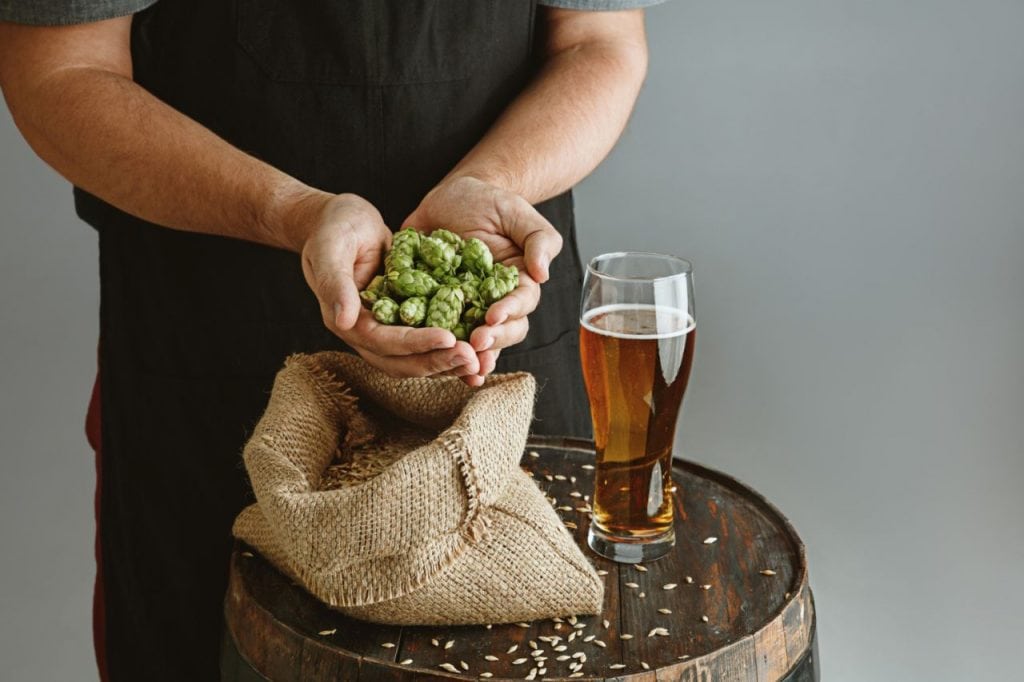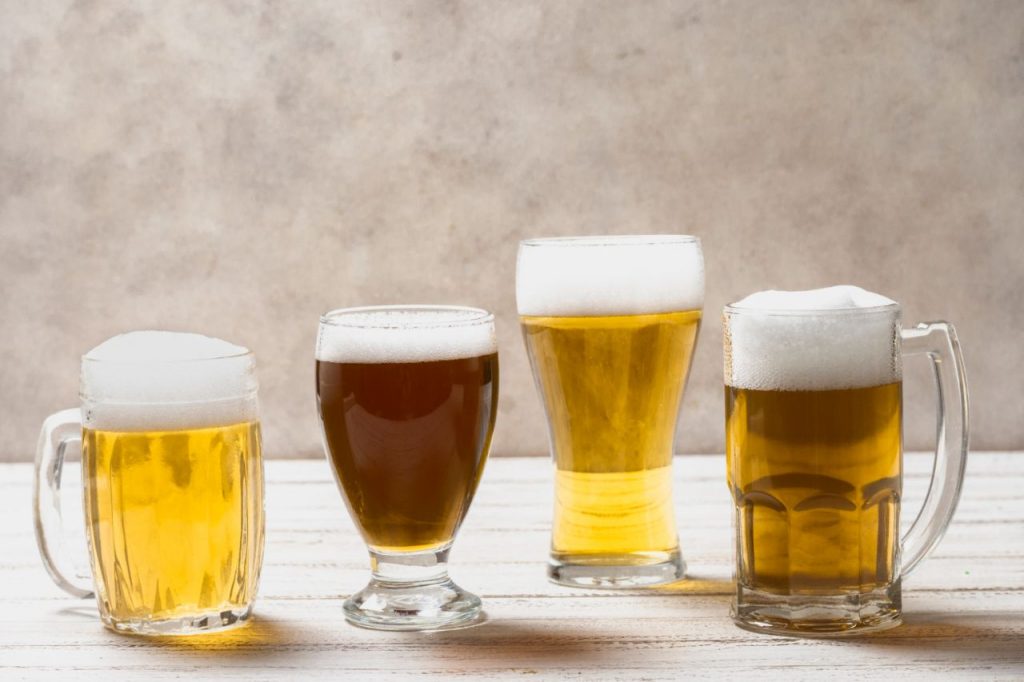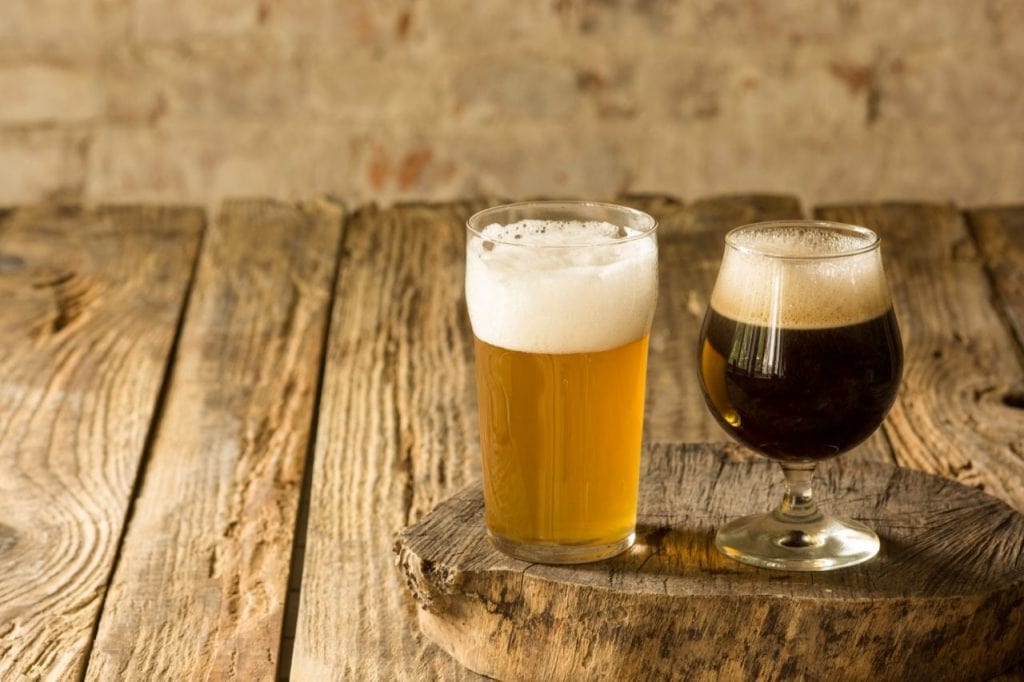The learning curve is a big part of what makes homebrewing so enjoyable. If you start with a simple beer recipe like malt extract, you can make beer that tastes excellent if you follow the directions. There are many pleasant and rewarding requirements in brewing but also many wet, messy, heavy, and challenging tasks.
It would help if you had more than a keen sense of smell for hop fragrance or a steady hand at the bar to brew beer successfully and reap the benefits. If one is prepared to put in the work, there are always growth opportunities.
Read on if you want to learn from the best and become a master brewer yourself.
Looking to discover and explore unique craft beer and spirits? Let us introduce you to Tar Barrel Mornington Brewery & Distillery – where traditional brewing techniques meet modern technology, offering an experience like no other.
Essential Skills and Qualities for a Successful Brewer
Doing Tasks By Hand
Brewers need many of the basic skills associated with manual labour. There's more to it than just lifting big objects; you'll also have to coordinate the movement of ingredients, the disposal of spent grain, and the safekeeping of finished goods.
Keeping your mind fresh and planning ahead of time is essential for physical labour. Things happen all day, and while some of them, like bottling, can be repetitious, there are always people performing different activities, so there's no time to sit about daydreaming as the world goes by.
Standard Qualifications
While some successful brewers got their start making beer at home, professional skills are increasingly expected of anybody hoping to work in the industry. Business buyers want to know that experts are familiar with the industry and the relevant laws brewed the beer they're getting.
Knows Brewing Theory
Brewing in the modern era is highly technical, necessitating a solid theoretical grounding in both the brewing process and quality evaluation. This requires more and more constant monitoring and measuring during production, frequently with the aid of laboratory equipment. Very often, formal education and certification are necessary to acquire such abilities.
Refreshing one's numeracy and other elementary abilities is also possible. Making beer does not need advanced math skills, but there are numbers in formulas that must be managed to meet exacting standards.
Even if it's part of the usual procedure, problem-solving can be boring. Unexpected results can occur when anything goes wrong, usually mechanical, or when a substitute substance is employed. Because yeast is so important to the brewing process, understanding and perfecting microbiology is vital for the industry's future.
The Ability To Observe
Accurate observation is crucial. A mash can appear normal until an off batch of malt or an error in measurement results in a wort with an undesirable colour or aroma.
When it comes to maintaining a steady and timely production rate, it's important to keep an eye on things like which valves are open and which are closed, as well as when specific temperatures are achieved.
Smell and sight are both helpful in detecting faulty fermentation. To avoid a ruined batch of beer, experience is helpful, but paying close attention to detail is often necessary.
Management of Time
Managing one's time well is crucial. The characteristics of a beer are affected by the precise timing of its production, specifically the mashing and boiling processes.
While fermentation allows for greater leeway, transporting beer from tank to tank requires constant monitoring to prevent frothing should the pump run too quickly. In addition, you should be prepared to be flexible with your work schedule to accommodate the possibility of unscheduled lunch breaks.
Good Communication Skills
More expertise is needed as a brewer's career develops. Head brewers frequently discuss their beers with customers personally through press releases, interviews, or even face-to-face conversations.
Aside from leadership and team support, managers need the ability to get things done and keep everyone on the same page. All of these are improved by practice, but it's also important to stay abreast of new findings.
Easy Steps Towards Being a Better Brewer
Consider The Quality Of Your Beers
You need to be able to judge the quality of your beer if you want to get better at brewing, and the more precise your judgements are, the better. An effective evaluation has two parts: learning to critique your beer and to find the most reliable external evaluation you can.
A brewer must identify the most prevalent beer flaws to make high-quality beer at home. A good method to gain expertise in this area is to sign up to be a judge (or steward) in a homebrew competition and then request to be matched with a more seasoned judge.
Also, find other seasoned homebrewers to give your beer a critical tasting. If you're looking for other brewers who could lend a hand, joining a homebrew group is a terrific idea. If you know a competent brewer, they can tell you what's wrong and how to fix it by tasting the beer.
Accepting constructive criticism can be challenging in the context of having your beer reviewed. Try not to let that dampen your spirits. Consider the weak points of your beer to be things you can work on and the strong points as motivation to keep brewing.
Learn Everything
Educate yourself thoroughly on the subject of brewing. Of course, an obvious and necessary first step is to do lots of reading. Yet, you can pick up a lot just by hanging out on brew days and listening to experienced brewers.
Critically consuming beer is another excellent way to expand your knowledge. If you take the time to evaluate the beers you drink regarding quality and what you like and don't like about each, you can determine if you're on the right track with your brewing.
Some beer enthusiasts even keep a journal of their tasting notes. Try to compare and contrast two or more beers of a similar style.
None of this should detract from the satisfaction of sipping a cold one. So stop for a second and think about how you may gain insight from each beer you sip.
Keep Brewing
A person's knowledge is invaluable, but when combined with practical experience, they become unbeatable. Knowing your brewery through and out (along with the characteristics of your local tap water, supplies from your neighbourhood homebrew shop, etc.) will help you create superior brews.
In other words, make coffee as frequently as you can. Look into volunteering at your neighbourhood brewpub, helping your brewing pals on their brew days, and doing your home brewing. After the beer starts piling up, it might think about cutting back.
Make Sure Your Recipes Are Easy To Follow.
Brewing, keep in mind, is more analogous to baking than cooking. A great beer's success can be attributed in part to its apparent lack of complexity. Instead than being overwhelmed by the multitude of ingredients, we propose focusing on a few crucial components.
Ingredients Should Be Fresh
When preparing food, only use the finest and freshest ingredients to ensure the highest possible taste and safety for your consumption. See that your yeast, hops, and grains are at peak performance. This is why it's best to buy from a neighbourhood brew store, where you can inspect the goods before purchasing.
Concentrate On Fermentation
The yeast does the work of making beer, but the brewer is responsible for creating the wort. Because of this, problems during the fermentation process are often the first sign of a subpar beer.
The success of your fermentation depends on pitching enough yeast and maintaining a steady temperature throughout. And remember to aerate the wort regularly.
Learn From Experience
Take advantage of your homebrewing experiments as much as possible. Keeping a brewing journal might be an effective tool for this. It's best to write down the procedure before the brewing day begins. Keep track of the time it took for each stage of the brewing process to run smoothly. If things don't go as planned, erase the offending procedure, fill in the blanks, and add the appropriate amount of time. Keep tabs on time spent on various tasks and their completion using this method.
Although keeping track of your brew day's events is essential, your records will serve you better if you link them to your tasting notes.
If you want to know how your brewing practises influenced the final flavour of your beer, you need to keep detailed tasting notes for each batch. Have you, for instance, amassed a larger quantity of wort than usual? Do you find that your beer has an astringent flavour?
Finally, make sure you're reviewing your brewing notes often. You won't believe how far you can come with just a few days of brewing.
Recognise Your Tools
Whether you plan to brew using extract, a partial mash, or from grain, you should be familiar with all of your equipment. To maximise productivity, ensure the safety of the brew day, and aid in troubleshooting, knowing every aspect of the system is essential.
Make Sure You Clean And Sanitize!
This may seem like the most apparent precaution to take, but you'd be astonished at how often beer gets contaminated due to negligence. You want more than simply "clean" hands and instruments from your surgeon. The idea is to sterilise them.
Conclusion
The most important details in this text are the essential skills and qualifications for a successful brewer. These include doing tasks by hand, keeping your mind fresh and planning ahead of time, knowing brewing theory, understanding and perfecting microbiology, having accurate observation, maintaining a steady and timely production rate, and problem-solving. Professional skills are increasingly expected of brewers, and it is important to be familiar with the industry and the relevant laws to ensure the quality of the beer they're getting. To avoid a ruined batch of beer, experience is helpful, but formal education and certification are necessary.
To become a better brewer, it is important to consider the quality of your beer, identify the most prevalent beer flaws, sign up to be a judge in a homebrew competition, find other seasoned homebrewers to give your beer a critical tasting, learn everything about brewing, accept constructive criticism, and critically consume beer. Additionally, managers need the ability to get things done and keep everyone on the same page. All of these are improved by practice and staying abreast of new findings.
Beer enthusiasts should keep a journal of their tasting notes and compare and contrast two or more beers of a similar style to gain insight. They should also make coffee as frequently as they can, volunteer at their neighbourhood brewpub, help their brewing pals on their brew days, and make sure their recipes are easy to follow. Fermentation should be concentrated on to ensure the highest possible taste and safety, and it is best to buy from a neighbourhood brew store.
The success of fermentation depends on pitching enough yeast and maintaining a steady temperature throughout. To ensure success, it is important to learn from experience and keep a brewing journal. Additionally, keep detailed tasting notes for each batch and review them often. Finally, recognize your tools and make sure to clean and sanitize them. This will help ensure the safety of the brew day and aid in troubleshooting.
Content Summary
- Essential Skills and Qualities for a Successful Brewer
- Brewers need many of the basic skills associated with manual labour.
- Keeping your mind fresh and planning ahead of time is essential for physical labour.
- Business buyers want to know that experts are familiar with the industry and the relevant laws brewed the beer they're getting.
- Brewing in the modern era is highly technical, necessitating a solid theoretical grounding in both the brewing process and quality evaluation.
- Because yeast is so important to the brewing process, understanding and perfecting microbiology is vital for the industry's future.
- When it comes to maintaining a steady and timely production rate, it's important to keep an eye on things like which valves are open and which are closed, as well as when specific temperatures are achieved.
- More expertise is needed as a brewer's career develops.
- A good method to gain expertise in this area is to sign up to be a judge (or steward) in a homebrew competition and then request to be matched with a more seasoned judge.
- Also, find other seasoned homebrewers to give your beer a critical tasting.
- If you're looking for other brewers who could lend a hand, joining a homebrew group is a terrific idea.
- Consider the weak points of your beer to be things you can work on and the strong points as motivation to keep brewing.
- Educate yourself thoroughly on the subject of brewing.
- Some beer enthusiasts even keep a journal of their tasting notes.
- Try to compare and contrast two or more beers of a similar style.
- None of this should detract from the satisfaction of sipping a cold one.
- So stop for a second and think about how you may gain insight from each beer you sip.
- A person's knowledge is invaluable, but when combined with practical experience, they become unbeatable.
- Knowing your brewery through and out (along with the characteristics of your local tap water, supplies from your neighbourhood homebrew shop, etc.)
- will help you create superior brews.
- In other words, make coffee as frequently as you can.
- Look into volunteering at your neighbourhood brewpub, helping your brewing pals on their brew days, and doing your home brewing.
- After the beer starts piling up, it might think about cutting back.
- Brewing, keep in mind, is more analogous to baking than cooking.
- A great beer's success can be attributed in part to its apparent lack of complexity.
- Instead than being overwhelmed by the multitude of ingredients, we propose focusing on a few crucial components.
- When preparing food, only use the finest and freshest ingredients to ensure the highest possible taste and safety for your consumption.
- See that your yeast, hops, and grains are at peak performance.
- The yeast does the work of making beer, but the brewer is responsible for creating the wort.
- Because of this, problems during the fermentation process are often the first sign of a subpar beer.
- And remember to aerate the wort regularly.
- Take advantage of your homebrewing experiments as much as possible.
- Keeping a brewing journal might be an effective tool for this.
- It's best to write down the procedure before the brewing day begins.
- Keep track of the time it took for each stage of the brewing process to run smoothly.
- Although keeping track of your brew day's events is essential, your records will serve you better if you link them to your tasting notes.
- If you want to know how your brewing practises influenced the final flavour of your beer, you need to keep detailed tasting notes for each batch.
- Finally, make sure you're reviewing your brewing notes often.
- Whether you plan to brew using extract, a partial mash, or from grain, you should be familiar with all of your equipment.
Frequently Asked Questions
It's a personal preference, but many homebrewers enjoy experimenting with different styles and ingredients to develop their skills and knowledge.
One approach is to identify the problem and research potential causes and solutions. Online forums and local homebrew clubs can also be valuable resources for troubleshooting.
One way is to practice tasting and evaluating different good and bad beers to develop your palate. Additionally, resources, such as the Beer Judge Certification Program, provide training in beer evaluation.
Several books and online resources are available that delve into the science of brewing, including the chemical and biological processes that occur during fermentation.
Both are important, but it's generally recommended to focus on improving your brewing techniques first, as this will have the greatest impact on the quality of your beer.

